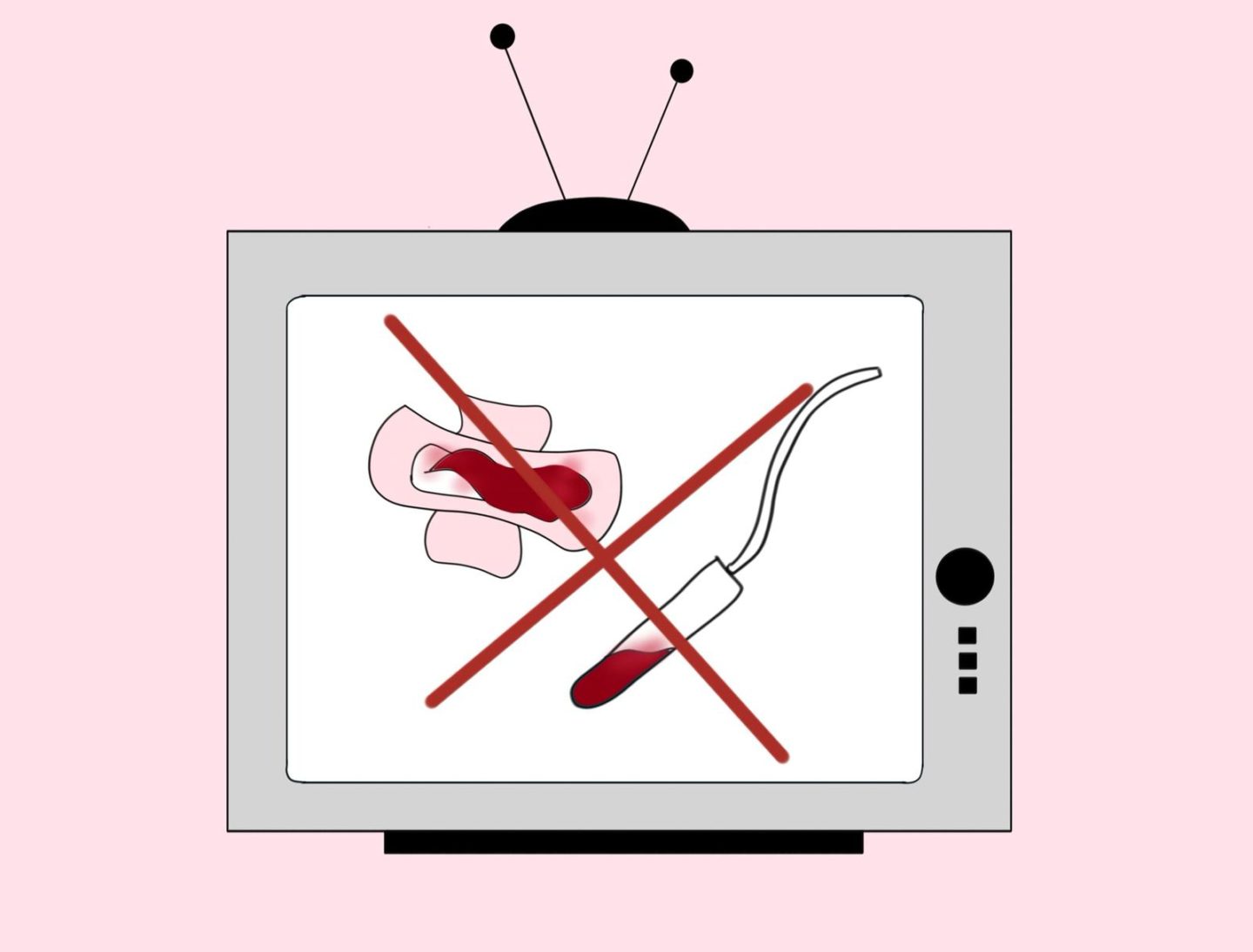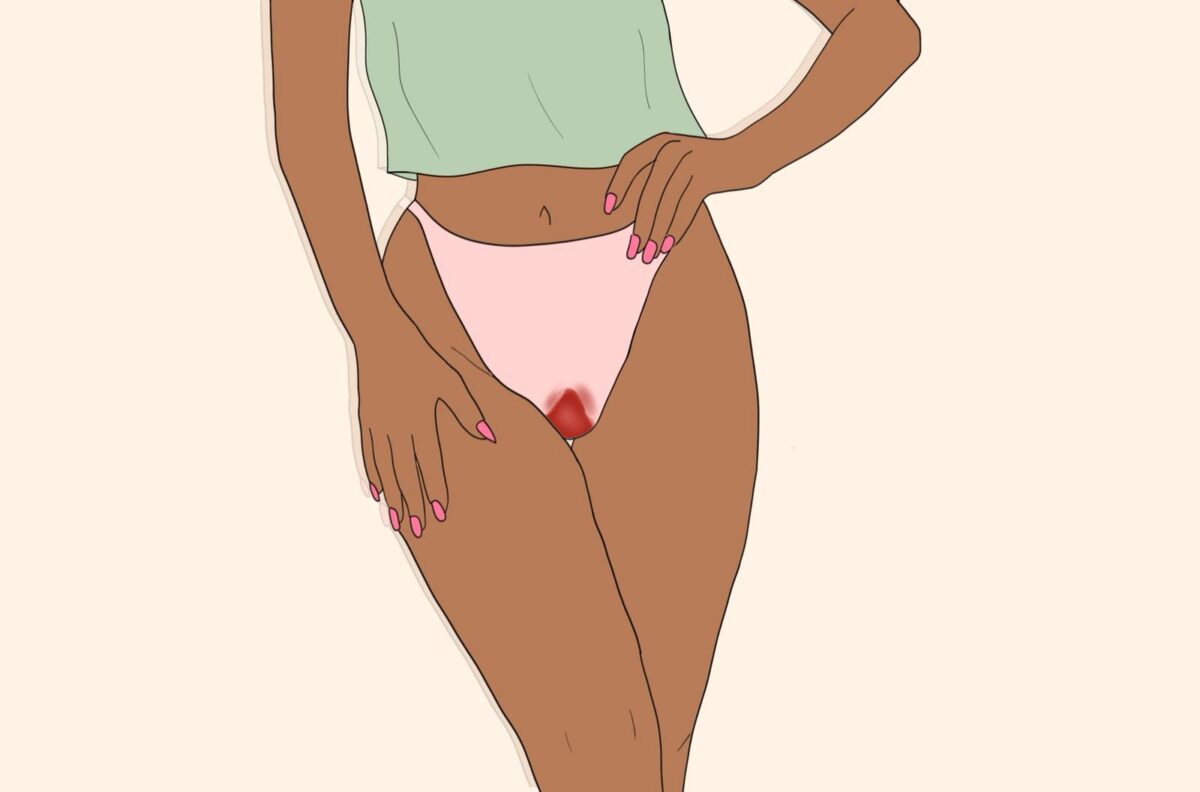The rise of pop culture representing real issues – even within media that does not define itself as radical or political – has bought attention to subjects like rape, abuse and addiction. And yet, even in this new era of societal commentary and relevance, periods in pop culture continues to be a topic either misrepresented, ignored, or worse, censored.
The first time I saw menstruation explicitly depicted on screen
One of the most widely read and studied books in middle schools today is Anne Frank: The Diary of a Young Girl. The infamous novel was re-edited and censored before being taught not for its descriptions of the Holocaust or the horrors of the Second World War but for a scene where the author describes menstruation.
In fact, I realised while researching the first time I ever saw menstruation explicitly depicted on a television show was a scene in Game Of Thrones when Sansa wakes up with blood stained sheets and rushes to hide it before Ceresi can discover she’s ready to marry and bear children.
The reduction of menstruation to a plot device in fantasy fiction with the characterisation of something damning and shameful is not a healthy image for young girls, nor is the glorification and sensationalisation of periods.
Periods are either used for humour, misrepresented or completely ignored

On the rare occasion they are mentioned or included, periods are described as a pillar of femininity – the hyperbolic climax of puberty or some indomitable rite of passage; the idea that once you get your period you’re finally a woman. Not only is this a triggering and insensitive narrative for women that can’t conceive or don’t experience menstruation, it completely alienates trans-women.
Depicting periods as a revered coming-of-age experience is both damaging and unrealistic. It’s fair to say most women see periods as a minor inconvenience or just a part of life – there is no great ceremony or identity attached to them.
Too often periods are used as the tagline of tired sexist jokes like the infamous ‘are you on your period’, accompanied by a condescending stare and ignorant smirk whenever a woman is angry or impassioned.
Our options seem to be (a) used for humor (b) misrepresented (c) glorified or (d) completely ignored. I’ve always wondered what would happen if Katniss had gotten her period during the Hunger Games (which should have happened seeing as they’re in the arena for nearly a month) or how astronauts deal with menstruation in space… no action movie or sci-fi novel has ever dealt with the subject.
Even shows like Friends or The Big Bang Theory, part of an entire genre meant to be relatable and realistic, only mention menstruation when the female characters are trying to conceive.
Even period product commercials perpetuate the idea that a period is something restrictive by focusing their advertising on being able to do everything normally, as if menstruation was something out of the ordinary. They show blue liquid instead of blood as if the very people who will be buying the products have never seen a bloody sanitary towel.
Perhaps even more misrepresented in visual media and literature is menopause. After hours of searching, the only reference I could find was a monologue given in Phoebe Waller Bridge’s Fleabag concerning the female experience and the menstrual cycle throughout a woman’s lifetime. It’s largely seen as taboo, something rarely spoken about and never depicted on screen. In my experience, this translates to real life. The menopause is an integral stage of a woman’s life but we learn very little about it and speaking openly about the experience is often actively discouraged.
A new generation of radical media
Pop culture plays an undeniable role in shaping teen development and yet a major part of that development is never explored, perpetuating the stigma that has surrounded periods and plagued young girls for centuries.
Entertainment and popular culture remains a male dominated industry and although men can certainly empathise with the female experience, they can never truly understand or accurately represent our insight.
However, with a new generation of radical media and a rising proportion of female authors, filmmakers and creators, menstruation is a vital narrative to normalise.
Young girls tucking pads up their sleeves, embarrassed to ask to leave for the bathroom or desperately hiding bloodstained clothes and quietly asking their friends to check for marks might not be so ashamed if they saw their experiences normalised on screen.
We need to make that change.
Find more lifestyle articles here >
Written by Emily Jones
Illustrated by Francesca Mariama


Love this article! Alot of people fail to acknowledge the trans experience. Menstruationisn’t the defining feature of a womxn. Alot of trans-men and non-binary people menstrate yet this is something that’s never discussed. Such a necessary conversation!